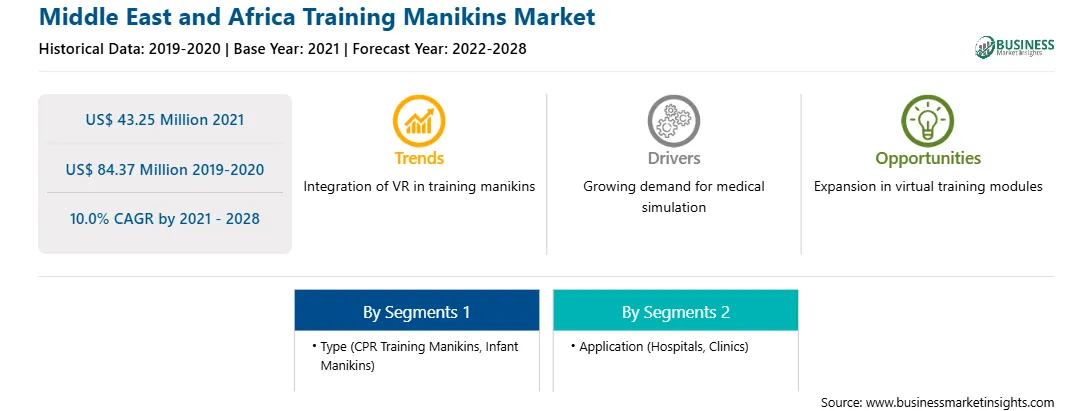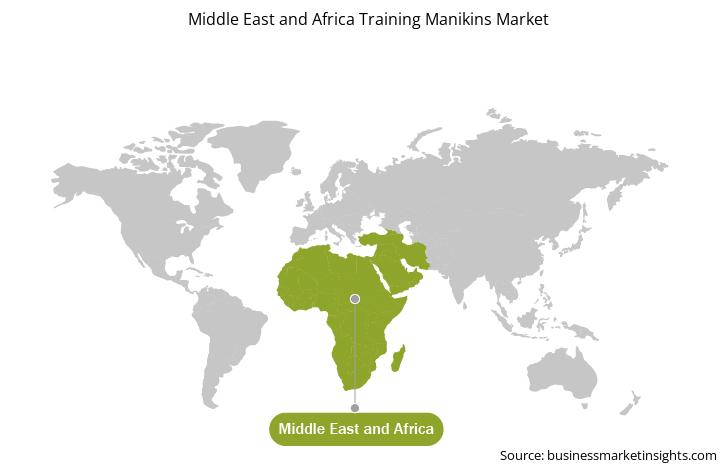The recent COVID-19 pandemic provided growth opportunities for training manikins. The manikins have been used to train testing methods, Cardiopulmonary Resuscitation (CPR), and other crucial procedures that are crucial for saving lives. Student learning, especially nursing students, was put on hold due to the COVID-19 pandemic, as live training and simulations were impossible. Various simulation centers and remote training programs were conducted to continue training students. Further, the simulator went through various scenarios wherein the patient may be under sedation, stress, and other conditions to understand and adapt to the healthcare provider's approach to treatment and care. CAE Healthcare developed a "Simulated Clinical Experience" (SCE) software patch for their manikins that would recreate the symptoms and behaviors of a sick patient. The company also provided webinars for training purposes. The manikins behaved as a potential COVID-19 patient exhibiting breathing issues (both audibly and in pulse-ox feedback), rapid heart rate, fever, and other symptoms. The SCE patch included a basic patient presentation, triage and patient assessment skills, the implementation of safety protocols to prevent further infection and cross-contamination, guidance for caring for the patients as symptoms progress, waste-disposal management, and “after-care actions” such as quarantine and notifying the public. In Tunisia, the Honoris Medical Simulation Center provided technical, and clinical procedures online, meeting student and professional training needs during the COVID-19 pandemic while creating remote learning and medical research opportunities across Africa. The center offered online sessions in patient care from November 2020 to train and educate professionals across Africa, that focused on the COVID-19 pandemic. Training healthcare professionals and the public alike will be crucial, which is expected to continue this trend to further growth in the coming years.
Middle East & Africa Training Manikins Market Revenue and Forecast to 2028 (US$ Million)
Middle East & Africa Training Manikins Market Segmentation
The Middle East & Africa training manikins market is segmented into type, application, and country. The Middle East & Africa training manikins market, based on type, has been segmented into CPR training manikins, infant manikins, and others. In 2021, the CPR training manikins segment held the largest share in the market. The Middle East & Africa training manikins market, based on application, is segmented into hospitals, clinics, and others. In 2021, the hospitals segment held the largest share in the market. Similarly, based on country, the Middle East & Africa training manikins market is segmented into Saudi Arabia, South Africa, the UAE, and the rest of the Middle East & Africa. Furthermore, Saudi Arabia contributed a substantial share in 2021.
3B Scientific, American CPR, CAE Inc., Gaumard Scientific, Laerdal Medical, and Nasco Healthcare are among the leading companies in the Middle East & Africa training manikins market.
Strategic insights for the Middle East and Africa Training Manikins provides data-driven analysis of the industry landscape, including current trends, key players, and regional nuances. These insights offer actionable recommendations, enabling readers to differentiate themselves from competitors by identifying untapped segments or developing unique value propositions. Leveraging data analytics, these insights help industry players anticipate the market shifts, whether investors, manufacturers, or other stakeholders. A future-oriented perspective is essential, helping stakeholders anticipate market shifts and position themselves for long-term success in this dynamic region. Ultimately, effective strategic insights empower readers to make informed decisions that drive profitability and achieve their business objectives within the market.

| Report Attribute | Details |
|---|---|
| Market size in 2021 | US$ 43.25 Million |
| Market Size by 2028 | US$ 84.37 Million |
| Global CAGR (2021 - 2028) | 10.0% |
| Historical Data | 2019-2020 |
| Forecast period | 2022-2028 |
| Segments Covered |
By Type
|
| Regions and Countries Covered | Middle East and Africa
|
| Market leaders and key company profiles |
The geographic scope of the Middle East and Africa Training Manikins refers to the specific areas in which a business operates and competes. Understanding local distinctions, such as diverse consumer preferences (e.g., demand for specific plug types or battery backup durations), varying economic conditions, and regulatory environments, is crucial for tailoring strategies to specific markets. Businesses can expand their reach by identifying underserved areas or adapting their offerings to meet local demands. A clear market focus allows for more effective resource allocation, targeted marketing campaigns, and better positioning against local competitors, ultimately driving growth in those targeted areas.

The Middle East and Africa Training Manikins Market is valued at US$ 43.25 Million in 2021, it is projected to reach US$ 84.37 Million by 2028.
As per our report Middle East and Africa Training Manikins Market, the market size is valued at US$ 43.25 Million in 2021, projecting it to reach US$ 84.37 Million by 2028. This translates to a CAGR of approximately 10.0% during the forecast period.
The Middle East and Africa Training Manikins Market report typically cover these key segments-
The historic period, base year, and forecast period can vary slightly depending on the specific market research report. However, for the Middle East and Africa Training Manikins Market report:
The Middle East and Africa Training Manikins Market is populated by several key players, each contributing to its growth and innovation. Some of the major players include:
The Middle East and Africa Training Manikins Market report is valuable for diverse stakeholders, including:
Essentially, anyone involved in or considering involvement in the Middle East and Africa Training Manikins Market value chain can benefit from the information contained in a comprehensive market report.